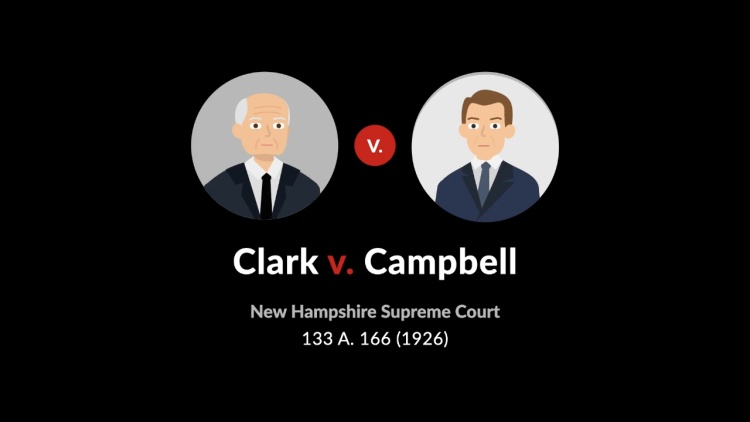Clark v. Campbell
New Hampshire Supreme Court
133 A. 166 (1926)

- Written by Christine Raino, JD
Facts
The ninth clause of Charles Cummings’s will bequeathed all of Cummings’s personal property to Cummings’s trustees so the trustees could distribute the personal property to Cummings’s friends. The will did not indicate any specific intended beneficiaries. Rather, the will referred only generally to the friends to whom the trustees were to distribute the property and stated that the trustees were familiar with Cummings’s property and friendships. The will further provided that any property not distributed by the trustees to the friends was to be distributed as part of the residue of Cummings’s estate. Clark and other trustees (plaintiffs) brought an action against Campbell and other beneficiaries (defendants) in New Hampshire state court, seeking instructions on how to probate Cummings’s will. During that proceeding, a question arose regarding whether Cummings’s bequest to his friends failed for lack of certainty in defining the beneficiaries of the trust that the terms of his will seemed to establish. The lower court certified the question to the New Hampshire Supreme Court, which addressed the following arguments: (1) that the ninth clause of Cummings’s will made an outright gift to the trustees rather than establishing a trust and (2) alternatively, that the ninth clause granted the trustees an optional power to distribute the property as they chose.
Rule of Law
Issue
Holding and Reasoning (Snow, J.)
What to do next…
Here's why 907,000 law students have relied on our case briefs:
- Written by law professors and practitioners, not other law students. 47,100 briefs, keyed to 996 casebooks. Top-notch customer support.
- The right amount of information, includes the facts, issues, rule of law, holding and reasoning, and any concurrences and dissents.
- Access in your classes, works on your mobile and tablet. Massive library of related video lessons and high quality multiple-choice questions.
- Easy to use, uniform format for every case brief. Written in plain English, not in legalese. Our briefs summarize and simplify; they don’t just repeat the court’s language.





